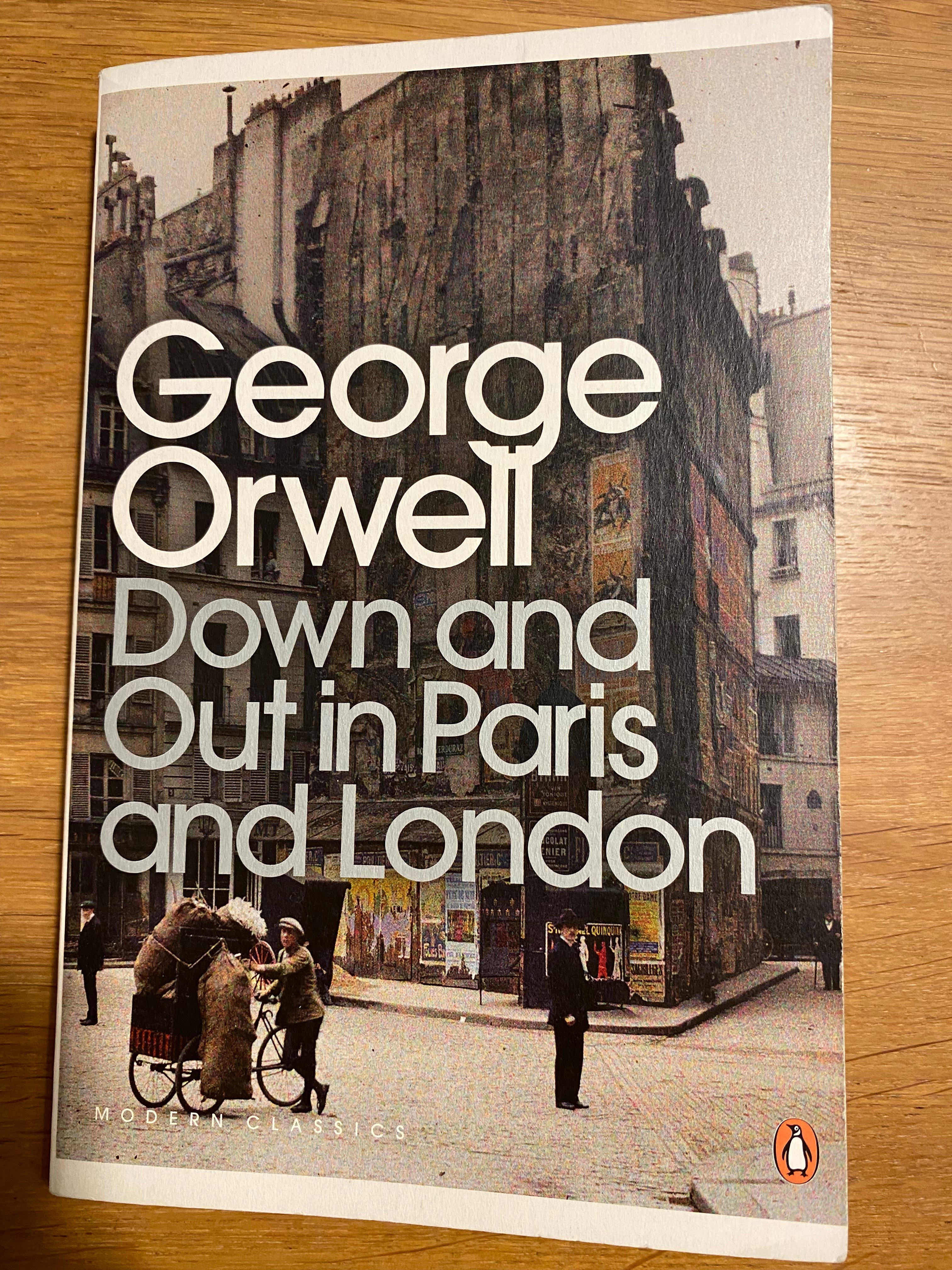 求推介
求推介[書蟲]你最近睇緊咩書?10
有風吹起就夠
1001 回覆
107 Like
5 Dislike
想問下有無宋朝同明朝歷史書好睇 求推介
求推介
 求推介
求推介明朝歷史書的話
最近有本叫《被統治的藝術》
雖然我無睇過
但見啲書評所講,似乎唔錯
https://www.facebook.com/rainchamber123/posts/4986476354782987
最近有本叫《被統治的藝術》
雖然我無睇過
但見啲書評所講,似乎唔錯

https://www.facebook.com/rainchamber123/posts/4986476354782987
制度套利的極限:從宋怡明的《被統治的藝術:中華帝國晚期的日常政治》反思上海封城後的中國
今天想談的一本書,雖然是明代軍戶制度的歷史書,但讀了卻得以對今天中國局勢帶來許多思考,這本書便是由聯經出版的《被統治的藝術:中華帝國晚期的日常政治》。
本書作者宋怡明教授(Michael A. Szonyi,以下為方便,直接稱宋怡明)是今天哈佛大學費正清中國研究中心的主任,其師友門生遍及歐美、臺灣、香港、中國等地,如果你聽過歷史人類學或是華南學派的話,對本書的內容並不陌生。
這本書結合了在金門跟中國華南地區的田野調查,利用了大量的族譜、地方廟宇的碑刻、中國各地的地方誌(如廣州府志、晉江縣志、彰州府志、安溪縣志、永春縣志、鎮海衛志、銅山誌等),作者師承於卜正民、科大衛跟鄭振滿,尤其後兩者的影響對本書非常大。
本書對於非明史領域的讀者來說,讀起來會相對吃力些。我本人讀過約兩千份的清代臺灣契約跟大概幾十份祖譜,但在細讀書中引用的華南古書契,仍然感到非常吃力,如果你非相關領域,讀不懂這些文書也很正常,但作者都有用白話解釋這些史料,真的卡住了跳過即可。
本書的論點很精彩:在明帝國大一統「編戶齊民」的壓力下,透過這些民間史料,我們可以看到民眾與帝國在「博弈」,時常一來一往,上有政策,下有對策,民時常與官鬥,比方說明帝國將大量人口編入了「軍戶」,被編入軍戶的家庭要隨時被抽調男丁去補充軍隊,為了減少這些政策帶來的損害,這些家庭就使出了各種千奇百怪的策略,這便是書中所說的「日常生活的政治實踐」。
對於明代百姓來說,被編入軍戶有好有壞,好處包括了可以用官方的名義去做海上貿易(很多好明代的倭寇就是這些軍戶在搞走私),或是可以跟地方士大夫建立關係,但壞處就是可能突然家人被抽丁入伍,尤其軍戶屢行職責的地方,可能離原鄉很遠,一旦入伍,生死離別是常態。這些不確定性會造成很大的問題。對編入軍戶的百姓來說,便想方設法在各種規則底下,保持被編入軍戶的好處,而減少甚至轉嫁當中的壞處。
這本書利用金融實證研究的術語 - 「制度套利(Regulatory Arbitrage)」 - 來形容這些民眾的策略。 這些具備多重身份的家庭,往往想盡辦法在不同制度/身份間轉換以行套利,使得地方百姓在某種程度上能與帝國周旋,這便是本書的主旨:「被統治的藝術」。這本書也延伸了作者另外一本書Practicing Kinship: Lineage and Descent in Late Imperial China的觀點:某方面來說,明代以來的宗族興起,正是地方與帝國周旋的產物。
在細談本書對於當代可以帶來的反思之前,我想先談一下相關文獻。
如果熟悉鄭振滿(宋怡明的老師之一)的博士論文《明清福建家族組織與社會變遷》的朋友,並不對上述的論點感到太意外。宋怡明所討論的許多對應軍戶徵召的民間策略,在鄭振滿教授博論的第五章已粗略提到過,而科大衛(宋怡明的另一位老師)之於香港新界的研究State and Lineage in South China,也將鄭振滿的博士論文列為重要的文獻起源。
這一系列試圖從民間史料說明「地方民眾與國家」互動的研究觀點,可以直接用鄭振滿的一句話來說明「國家內在於社會」,這觀點扭轉了過去常見的「國家統治社會」的二元對立觀點。
「國家內在於社會」的觀點,一方面指出國家介入地方,是地方社會發展的主要動力(像宋怡明提出的明代軍戶導致地方宗族興起),另一方面,隨著中央必須要跟地方民間社會談判,尤其在「基層社會的自治化」的趨勢,地方鄉里、宗族成為了地方自治的組織後,在政治上也跟著重要了起來(見鄭振滿博論),而中央要推動政策與意識型態到地方,不可能「原封不動地推行於民間,而必須與本地的社會文化傳統有機結合,才有可能落地生根」,對於鄭振滿本身的研究問題來說,「國家內在於社會」是他用來解釋中國在明清中國「大一統」的重要觀點。
這樣的研究取徑會得到很大的迴響,我個人覺得有兩個重大的原因。
第一個原因,是於許多研究者來說,其很好的解釋了明清如何在國家實力(state capacity)如此低下的情況下,仍然保持了如此巨大的統治疆域,儘管帝制中國的低國家實力,可能造成了其經濟上的落後(請參考Debin Ma的``State capacity and great divergence, the case of Qing China (1644–1911)"一文)
第二個原因,則是這種「地方能周旋於中央、民間能與官方談判、基層地方社會自治化」的觀點,是中國改革開放以來許多沿海城市地區的某種信念。華南學派的研究,在2022年上海封城之前,是我跟幾位中國時常討論、甚至有點吵起來的題材。無論是張五常、許成鋼、還是錢穎一,都將中國改革後以來的「經濟去中心化」、「地方政府競爭制度」(或俗稱的地方錦標賽),用來解釋中國的高速成長。
在這套制度底下,中央設定了一個綱領式的成長目標,而地方政府各出奇招來達成績效(其導致的光怪陸離的故事,可以參考馮軍旗的《中縣幹部》一書),在這樣的地方錦標賽之下,地方社會有一定的經濟活力,中央政府累積了大量的政策實驗結果,才會再推行到全國。而這樣的「地方自主空間」,以上海為代表。
在封城之前,中國人總覺得上海似乎是個制度飛地,這裡似乎有無可度量的經濟自由,生活方便,光彩繁華,宛如清帝國時期的「條約口岸」,有自己一套規矩。
中央辦中央的,地方有地方的邏輯,上有政策,下有對策,通常來說,上海總有自己一套辦法的方法,而這套方法保證了上海的繁榮,也貢獻了相當多中國改革開放以來的經濟成長。
出於這樣的信念,很多中國人與外國人,總認為中國共產黨中央無論在各項議題 - 香港、西藏、新疆 只不過是些例子 - 手段上多麼嚴酷,這些政治的不自由,不可能變成地方經濟上的不自由,上海似乎成為了一種《國家為什麼會失敗》的反例。Acemoglu跟Robinson說,沒有廣納性的政治制度,任何自由開放的經濟制度不可能長久。
於是乎,在上海封城之前,這些中國朋友普遍認為中央不至於把如此強硬的封控手段,實施到經濟重鎮上海。中國於2022年的上海封城,對於他們是個轉捩點。
不過真的有那麼意外嗎?春江水暖鴨先知,天安門事件後的金融業是最被整頓的對象。根據MIT商學院黃亞生教授的實證研究,在1979年後改革開放的第一個十年,各地區的農村金融不受太多管制,也沒有一套明確的政治錦標賽制度,農村的地方工業雨後春筍般的冒出,是中國鄉村脫貧最快的第一個十年,當時發展最好的地區不是北上廣深,而是安徽、蘇州、重慶、湖南。天安門事件前後,政治收緊,經濟跟著收緊,許多農村搞金融的大媽被處刑,金融回到了各個地方政府的控制之下,工業發展的區域轉移到了北上廣深,安徽反而成為了上海農民工的輸出地,城鄉差距擴大自此一去不復返。
所謂今日的地方自主,出於中央不願也,非不能也。
上海依然被封城,告訴了我們一件事:從1979年以來,老幹部為主而成立的中共統治菁英,為了推動經濟發展,以「市場改革」的旗艦,讓地方可以用「開放」當名義去做很多政策實驗,因而產生了許多制度套利的空間,但此般制度套利的空間不斷遭到限縮,於今天已到了某種極限。
今天的紅線無處不在。天安門事件後,先是畫了一道政治上的紅線,與政治最為緊密的金融部門,在1990年代便已遭整頓。今天,紅線從金融部門擴張開來,只是說明了,之於黨的最高層,上海與香港、西藏、新疆沒什麼不一樣,國家的社會關係被迫二元:北京強壓於全體人民之上,國家外在於社會,民終不能與官鬥,之於今天的中國人,被統治的藝術,所謂的日常生活的策略,已經演化成能出走就出走,不能出走就躺平,安份守己,毋忘黨章。
2022年6月16日是為記。



多謝巴打
斷斷續續睇咗大約五份一,留意到佢同以前嘅港督/外交官有兩大唔同。第一係用政客而唔係官員嘅身份嚟管治,經常會考慮埋同中方嘅政治角力。如果話英國特登喺回歸前搵彭定康嚟搞局,都唔係完全講唔通。另外佢好似有提到麥理浩做實事就叻,但同董建華一樣政治觸覺麻麻
第二係佢對中國嘅觀感比其他人負面好多,日記入面成日批評Percy Craddock等外交官盲信中國會因為經濟發展而慢慢開放同民主化,相信呢一點同佢前任衛奕信都好唔同

斷斷續續睇咗大約五份一,留意到佢同以前嘅港督/外交官有兩大唔同。第一係用政客而唔係官員嘅身份嚟管治,經常會考慮埋同中方嘅政治角力。如果話英國特登喺回歸前搵彭定康嚟搞局,都唔係完全講唔通。另外佢好似有提到麥理浩做實事就叻,但同董建華一樣政治觸覺麻麻

第二係佢對中國嘅觀感比其他人負面好多,日記入面成日批評Percy Craddock等外交官盲信中國會因為經濟發展而慢慢開放同民主化,相信呢一點同佢前任衛奕信都好唔同
// 日記入面成日批評Percy Craddock等外交官盲信中國會因為經濟發展而慢慢開放同民主化,相信呢一點同佢前任衛奕信都好唔同//
呢點我之前睇嗰本英國解密檔案嘅書都有呢種感覺

呢點我之前睇嗰本英國解密檔案嘅書都有呢種感覺


講明代既話黃仁宇本萬曆十五年歷久不衰,而家治明史既人仲會睇下佢。講宋史睇下你對咩topic有興趣,中研院柳立言寫過唔少關於宋代社會既野。
萬曆十五年睇左 thank you
thank you
 thank you
thank you有冇中國近代思想史書

賣血記算係好ending
啱啱睇完秘密
中間覺得有少少悶睇得好慢
但睇到結局先發現佢嘅精彩
如果我係男主實喊撚到仆街
中間覺得有少少悶睇得好慢
但睇到結局先發現佢嘅精彩
如果我係男主實喊撚到仆街

睇緊三體,第一本,真係痴撚線,好好睇 。
。
個idea小弟真係第一次睇到。
一陣出街買埋第二同第三集先
 。
。個idea小弟真係第一次睇到。
一陣出街買埋第二同第三集先

確實係好睇

如果你當清代仲係近代嘅話,可以睇下王汎森啲野,推薦佢本權力的毛細管作用
主要想睇晚清時期
呢本好似幾正
呢本好似幾正

有無啲書係講日本低欲望呢種現象嘅書? 最近好有興趣
最近好有興趣
 最近好有興趣
最近好有興趣大前研一好似出過本書exactly就係叫低慾望社會
呢本睇咗,想睇下有無其他
睇返A Game of Throne (第一本)
之前睇到7成左右就放低左
而家上house of dragon
又提返起性趣
之前睇到7成左右就放低左
而家上house of dragon
又提返起性趣
第一本反而我覺得有d悶
二三個世界觀同果種宇宙尺度既戰爭先正
二三個世界觀同果種宇宙尺度既戰爭先正
第一本我覺得已經好撚正 。
。
智子計畫真係估佢唔到
 。
。智子計畫真係估佢唔到
第一部唔錯 不過完左睇返相對冇咩特別
第二部前半一般 後半imo全系列高潮
第三部好多有趣既點 但整體完全度不如二
第二部前半一般 後半imo全系列高潮
第三部好多有趣既點 但整體完全度不如二
第一部講起文革幾特別,另外後期降維作戰都係好有趣的主意,印象中無係其他小說睇過呢樣野。
個結局比人感覺好宏大好epic,完得幾好,一路睇黑暗叢林一路諗起Asimov基地系列個心理史學,,而結局令人聯想到Asimov最後的問題
但我覺得面壁計劃個idea好柒 ,其中一個男咁啱就搵到佢個夢中情人,而果個夢中情人好似完全無思想咁,好表面,中間互動好似中學生作文咁幼稚
,其中一個男咁啱就搵到佢個夢中情人,而果個夢中情人好似完全無思想咁,好表面,中間互動好似中學生作文咁幼稚
睇完個餘韻幾勁,但諗返其實成個故事其實就係反映大陸人果套非我族類其心必異思維,外人一定會同你爭奪資源,成個世界係零和遊戲、唔會有合作雙贏。為左要贏就算幾不擇手段幾卑鄙都得,諗到呢度就唔係咁鍾意呢個故事
感覺上劉慈欣似係寫短篇好過長篇,大橋好有興趣,但角色描寫比較一般
個結局比人感覺好宏大好epic,完得幾好,一路睇黑暗叢林一路諗起Asimov基地系列個心理史學,,而結局令人聯想到Asimov最後的問題
但我覺得面壁計劃個idea好柒
 ,其中一個男咁啱就搵到佢個夢中情人,而果個夢中情人好似完全無思想咁,好表面,中間互動好似中學生作文咁幼稚
,其中一個男咁啱就搵到佢個夢中情人,而果個夢中情人好似完全無思想咁,好表面,中間互動好似中學生作文咁幼稚睇完個餘韻幾勁,但諗返其實成個故事其實就係反映大陸人果套非我族類其心必異思維,外人一定會同你爭奪資源,成個世界係零和遊戲、唔會有合作雙贏。為左要贏就算幾不擇手段幾卑鄙都得,諗到呢度就唔係咁鍾意呢個故事
感覺上劉慈欣似係寫短篇好過長篇,大橋好有興趣,但角色描寫比較一般
羅輯老婆全書寫得最廢角色,所以都話第二本前段悶因為佢
劉慈欣寫大陸意識形態呢點唔否認,尤其配合埋第三卷寫左膠自掘墳墓更加明顯,不過算係邏輯自洽我都接受到
反而佢有啲短篇純歌頌黨國就真係不了

劉慈欣寫大陸意識形態呢點唔否認,尤其配合埋第三卷寫左膠自掘墳墓更加明顯,不過算係邏輯自洽我都接受到
反而佢有啲短篇純歌頌黨國就真係不了

Down and Out in Paris and London – George Orwell
This book is about George Orwell’s observations on poverty. The author lived in Paris in 1928 and 1929. This part of the book describes how he struggled for food, his hard time in finding a job, his job as a dishwasher working hours in a hotel in Paris, and the caste system in a hotel. The other part of the book describes his experience living in various spikes in London. The book is not a fiction. Perhaps for this reason, there are no engaging characters in the book. This makes the reading a bit dull. The book is a report of the author’s down and out experiences in Paris and London. The reading is a bit dry, but the author has written a few inspirational passages. I have extracted them below:
Poverty frees them from ordinary standards of behaviour, just as money frees people from work.
You discover the boredom which is inseparable from poverty; the times when you have nothing to do and, being underfed, can interest yourself in nothing.
When you are approaching poverty, you make one discovery which outweighs some of the others. You discover boredom and mean complications and the beginnings of hunger, but you also discover the great redeeming feature of poverty: the fact that it annihilates the future. Within certain limits, it is actually true that the less money you have, the less you worry.
It was a great relief to remember that I had after all one influential friend to fall back on.
Everything else went as badly as possible.
Hunger reduces one to an utterly spineless, brainless condition, more like the after-effects of influenza than anything else. Complete inertia is my chief memory of hunger.
I was horribly disappointed, for I had allowed my belly to expect food, a great mistake when one is hungry.
Fate seemed to be playing a series of extraordinarily unamusing jokes.
Smartness, as it is called, means, in effect, merely that the staff work more and the customers pay more; no one benefits except the proprietor. A slave should be working when he is not sleeping. It does not matter whether his work is needed or not, he must work, because work in itself is good – for salves, at least. It is saver to keep them too busy to think.
To sum up. A plongeur (dishwasher) is a slave, and a wasted slave, doing stupid and largely unnecessary work. He is kept at work, ultimately, because of a vague feeling that he would be dangerous if he had leisure. And educated people, who should be on his side, acquiesce in the process, because they know nothing about him and consequently are afraid of him. I say this of the plongeur because it is his case I have been considering; it would apply equally to numberless other types of worker.
You are past redemption.
Once I did a cartoon of a boa constrictor marked Capital swallowing a rabbit marked Labour.
If you set yourself to it, you can live the same life, rich or poor. You can still keep on with your books and your ideas. You just got to say to yourself, “I’m a free man in here” – he tapped his forehead – “and you’re all right.”
There are three especial evils that need insisting upon. The first is hunger, which is the almost general fate of tramps. The second great evil of a tramp’s life is that he is entirely cut off from contact with women. The other great evil of a tramp’s life is enforced idleness. The problem is how to turn the tramp from a bored, half-alive vagrant into a self-respecting human being. This can only be done by finding him work – not work for the sake of working, but work of which he can enjoy the benefit. The produce of the farm or garden could be used for feeding the tramps. A scheme which fed them decently, and made them produce at least a part of their own food, would be worth trying.
https://youtu.be/R03hRZDpvsc